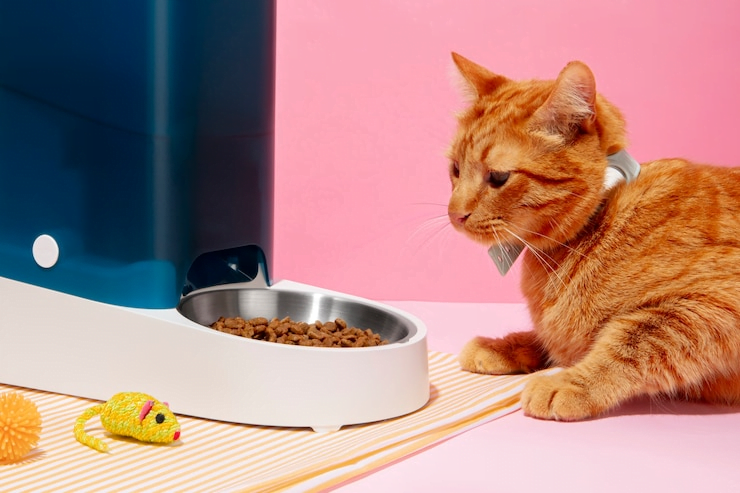
Rheumocam for Cats Overdose Treatment A Comprehensive Guide:
Accidental medication overdoses in pets, particularly cats, can be distressing for pet owners. Among the medications that pose risks, nonsteroidal anti-inflammatory drugs (NSAIDs) like Rheumocam can lead to serious health issues if not managed promptly. This article aims to provide essential guidance on recognizing and treating Rheumocam overdose in cats, ensuring the safety and well-being of our feline companions.
What is Rheumocam for Cats?
Rheumocam is a nonsteroidal anti-inflammatory drug (NSAID) commonly used in veterinary medicine to manage pain and inflammation in cats. It’s prescribed for conditions like arthritis or post-surgery discomfort. Rheumocam works by blocking enzymes responsible for inflammation, providing relief to cats suffering from various ailments.
How Does Rheumocam Work?
Rheumocam inhibits enzymes called cyclooxygenases (COX enzymes), which play a crucial role in producing prostaglandins – substances that cause pain and inflammation. By reducing prostaglandin production, Rheumocam effectively relieves pain and inflammation in cats.
Dosing Guidelines for Cats
When administering Rheumocam to your cat, always follow your veterinarian’s instructions precisely. The dosage is based on your cat’s weight and health condition. Never give your cat medication without veterinary approval, as overdosing can have severe consequences.
Signs of Rheumocam Overdose in Cats
Overdosing on Rheumocam can lead to serious health issues for your feline friend. Watch out for symptoms like vomiting, diarrhea, loss of appetite, lethargy, or signs of gastrointestinal bleeding. If you suspect an overdose, act promptly.
Immediate Steps When Overdose is Suspected
Upon suspecting a Rheumocam overdose, take immediate action. Contact your veterinarian or emergency animal hospital for guidance. Provide them with details of the incident, including your cat’s weight and the amount of medication ingested.
Veterinary Treatment for Rheumocam Overdose
Veterinary intervention is crucial in cases of Rheumocam overdose. Treatment may involve inducing vomiting, administering activated charcoal to absorb the drug, intravenous fluids to support kidney function, and monitoring for any complications.
Prognosis After Overdose
The prognosis depends on the severity of the overdose and the promptness of treatment. With timely intervention, many cats recover from Rheumocam overdoses. However, severe cases can lead to organ damage or even death.
Preventing Overdose Situations
To prevent accidental overdose, store medications securely out of reach of pets. Follow dosing instructions meticulously and never increase or change your cat’s medication regimen without consulting your vet.
Alternative Pain Management for Cats
If Rheumocam isn’t suitable for your cat or if you prefer alternative options, discuss other pain management strategies with your veterinarian. These may include physical therapy, acupuncture, or alternative medications.
Risks of Overdose
Cats are particularly sensitive to NSAIDs like Rheumocam. Exceeding the recommended dosage or accidentally ingesting additional doses can lead to overdose.
Symptoms of Overdose in Cats
Signs of Rheumocam overdose in cats may include:
.Vomiting
.Diarrhea
.Loss of appetite
.Lethargy
.Increased thirst and urination
.Gastrointestinal ulcers
.Kidney failure
Immediate Actions
If you suspect your cat has overdosed on Rheumocam, it’s essential to act swiftly:
.Recognizing Overdose Symptoms: Monitor your cat for unusual behaviors or physical symptoms.
.Contacting a Veterinarian: Immediately contact your veterinarian or an emergency pet clinic for guidance.
Veterinary Treatment Options
Veterinarians will typically recommend the following treatment options for Rheumocam overdose:
- Emergency Veterinary Care: Prompt intervention is crucial to mitigate potential organ damage.
- Decontamination and Supportive Care: Your vet may induce vomiting or administer activated charcoal to limit absorption.
- Use of Specific Antidotes: In severe cases, specific antidotes may be employed if available
Recovery Process
After initial treatment, your cat will require:
.Monitoring: Close observation to ensure stabilization and recovery.
.Follow-up Care: Subsequent visits to the vet for monitoring kidney function and overall health.
Preventive Measures
To prevent Rheumocam overdose:
1. Proper Dosing: Always follow your vet’s dosage instructions precisely.
2. Safe Handling and Storage: Keep medications out of reach and stored securely to avoid accidental ingestion.
Common Uses and Dosage

Rheumocam can be administered orally or via injection under veterinary supervision. The dosage typically depends on the cat’s weight and condition. It’s crucial to strictly follow your vet’s instructions regarding dosage and frequenc
Signs and Symptoms of Rheumocam Overdose
General signs of NSAID toxicity
NSAIDs can cause gastrointestinal upset, kidney dysfunction, and even liver damage in cats. Overdose symptoms may manifest similarly but can escalate rapidly.
Specific symptoms of Rheumocam overdose in cats
Watch out for signs such as vomiting, diarrhea (possibly bloody), increased thirst, lethargy, lack of appetite, and changes in urination patterns.
Factors Influencing Toxicity
Several factors can influence the degree of toxicity following Rheumocam overdose in cats:
.Dose Dependency: The severity of symptoms correlates with the amount of meloxicam ingested relative to the cat’s body weight.
.Pre-existing Conditions: Cats with compromised kidney function or pre-existing gastrointestinal issues are at higher risk of developing severe complications.
.Drug Interactions: Concurrent use of other medications that affect renal function can exacerbate meloxicam toxicity.
Diagnostic Challenges
Diagnosing meloxicam overdose in cats can be challenging due to nonspecific symptoms and potential overlap with other medical conditions. Differential diagnoses may include infectious diseases, metabolic disorders, or primary gastrointestinal disturbances. Veterinary diagnostics such as blood tests, urinalysis, and imaging studies are essential for accurate assessment.
Novel Treatment Approaches
Recent advances in veterinary medicine have introduced novel treatment approaches for managing NSAID toxicity in cats. These may include the use of specific antidotes targeting NSAID-induced toxicity pathways or the application of supportive therapies tailored to mitigate renal and gastrointestinal damage.
Prognostic Indicators
Identifying prognostic indicators can aid in predicting the outcome of Rheumocam overdose cases in cats:
.Serum Creatinine Levels: Elevated creatinine levels indicate compromised kidney function and may predict a poorer prognosis.
.Duration of Symptoms: Cats presenting with rapid-onset and severe symptoms may face a more challenging recovery process.
.Response to Treatment: Positive response to early intervention and supportive care is a favorable prognostic indicator.
Conclusion
In conclusion, Rheumocam can be a valuable tool in managing pain and inflammation in cats when used correctly. However, overdose can be dangerous, so it’s crucial to be vigilant and seek immediate veterinary care if an overdose is suspected.
FAQs
Can cats overdose on Rheumocam?
Yes, cats can overdose on Rheumocam if given too much of the medication.
What are the signs of Rheumocam overdose in cats?
Signs of Rheumocam overdose in cats include vomiting, diarrhea, loss of appetite, lethargy, and gastrointestinal bleeding.
What should I do if I suspect my cat has overdosed on Rheumocam?
If you suspect a Rheumocam overdose, contact your veterinarian immediately for guidance and treatment.
How is Rheumocam overdose treated in cats?
Treatment for Rheumocam overdose in cats may include inducing vomiting, administering activated charcoal, intravenous fluids, and close monitoring by a veterinarian.
Can Rheumocam overdose be fatal in cats?
Yes, severe cases of Rheumocam overdose can be fatal, leading to organ damage or other serious complications.













